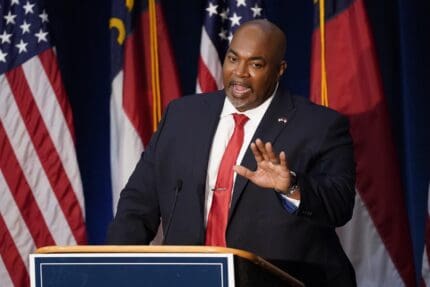Yes, Trump can have the special counsel fired, but this is still a huge win
The latest political earthquake to rock Donald Trump’s young and chaotic presidency is the appointment of former FBI Director Robert Mueller as special counsel for the Russia investigation. It’s a move that has drawn near-universal, if at times qualified, praise. Democrats like Senate Minority Leader Chuck Schumer and House Minority Leader Nancy Pelosi have essentially called this a first […]

The latest political earthquake to rock Donald Trump’s young and chaotic presidency is the appointment of former FBI Director Robert Mueller as special counsel for the Russia investigation.
It’s a move that has drawn near-universal, if at times qualified, praise. Democrats like Senate Minority Leader Chuck Schumer and House Minority Leader Nancy Pelosi have essentially called this a first step in the right direction that gives them “greater confidence” in the investigation. However, Democrats have also been clear that their confidence would be enhanced by the creation of an independent commission.
One of the drawbacks of the Mueller appointment, however, is that the statute under which it was made allows for his removal by the attorney general, or in this case, by Deputy Attorney General Rod Rosenstein because Attorney General Jeff Sessions recused himself from investigations into the matter.
Writing for the LA Times, law professors Erwin Chemerinsky and Eric M. Freedman explain that this essentially gives Donald Trump the ability to fire Mueller:
Without the protection of the independent counsel law, however, Trump can order Rosenstein to fire Mueller, and fire Rosenstein if he refuses.
Nor is an investigation by Congress or an independent commission enough. Criminal charges, if warranted, cannot be brought unless there is a prosecutor.
Only a special prosecutor appointed under a new independent counsel law can thoroughly investigate the many serious allegations swirling around this administration, and then prosecute if necessary.
The original special prosecutor statute lapsed in 1999, which is why Mueller was appointed under the statute that replaced it.
Chemerinsky and Freedman are correct that a new special prosecutor statute that protected the post from politically motivated removal would be much better than what we now have, although the politicization of the courts has made such protection somewhat illusory.
But this weakness in the Mueller appointment should not be viewed as rendering it meaningless, or even close. Mueller’s appointment enjoys political protections that are quite strong and have already proven themselves in this matter.
It was Trump’s authority to fire Comey that provided the tipping point for Mueller’s appointment, after months of political pressure from the resistance.
Constituents at town halls, public opinion polls, and elected Democrats “primed the pump,” as Donald Trump would say, for the political tsunami that forced Deputy Attorney General Rod Rosenstein to appoint Mueller in the wake of the outrageous Comey firing, and the revelation of memos detailing Trump’s effort to obstruct the Flynn investigation. Those same political forces would be brought to bear exponentially were Trump to try to oust Mueller.
Additionally, Mueller’s appointment enjoys the protection of his own reputation. If Rosenstein had appointed, say, Rudy Giuliani, no one would be wondering if Trump would try to fire him. The same political pressure that forced Rosenstein’s hand also forced him to choose someone in whom most people could have confidence, someone who would not keep quiet if Trump or Sessions tried to interfere with him, and against whom credible grounds for dismissal would be nearly impossible to find.
Democrats should continue to press for more independence for the Russia investigation, to be sure, but the Mueller appointment is still a win for the resistance, and a significant one.
Recommended

Republican Jay Ashcroft backs anti-abortion clinics that push lies and disinformation
The Republic Pregnancy Resource Center website provides step-by-step directions from local middle and high schools to their address.
By Jesse Valentine - May 14, 2024
More than half of Republican Jay Ashcroft’s funding comes from outside Missouri
Ashcroft has criticized other campaigns for relying on out-of-state donors
By Jesse Valentine - April 25, 2024
Battleground GOP candidates rally around Trump’s tax cuts for the rich
Even Larry Hogan, a Trump critic, supports the former president’s tax policy.
By Jesse Valentine - April 12, 2024



















































































